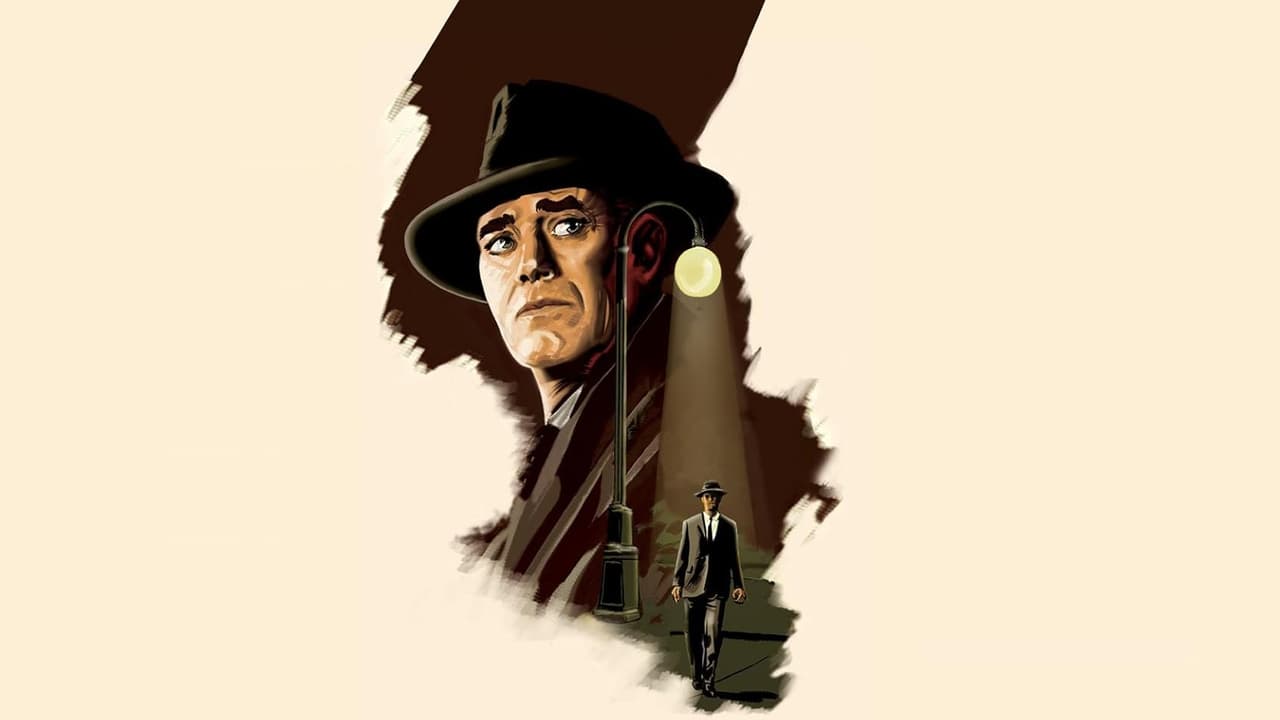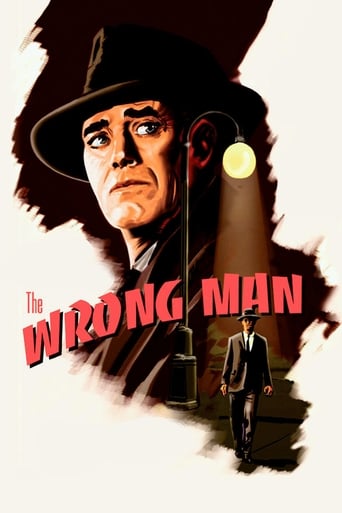



People are voting emotionally.
Brilliant and touching
This is a must-see and one of the best documentaries - and films - of this year.
View MoreIt's the kind of movie you'll want to see a second time with someone who hasn't seen it yet, to remember what it was like to watch it for the first time.
View MoreWould be interesting to know how Hitchcock viewed religion. Here's a lovely film that shows the the power of prayers--with an obvious Catholic element (rosary, Jesus painting on the wall, etc.) It is also a film that reflects the director's childhood fear of prisons.
View MoreGreat cinematography and a top notch performance by Henry Fonda, but as a movie - unexpectedly weak. Mainly sunk by the "based on a true story" premise, which just was not gripping enough for a feature film. Maybe a slow case of mistaken identity was what passed for suspense in the 50s, but these days we have another word for it - boring. Plus don't you just hate it, when the bad guy gets introduced a whopping three minutes before the final credits roll. There is not twist, no surprise, no cranial satisfaction. Just a lame "deus ex machina" resolution and a "then they lived happily ever after". What a let-down and not up to Hitchcock's usual standard at all.
View MoreWhile this film includes the familiar "Hitchcockian" themes of mistaken identity and of unsuspecting people suddenly finding themselves caught in the most exasperating situations, "The Wrong Man" comes with a couple of significant distinctions. Unlike most of Hitchcock's movies, this one is based on the true story of a New York City musician who is wrongly accused of several armed robberies in his Queens neighborhood. Beyond this, the film eventually moves from its focus on the wrongly accused victim to the devastating impact that an infuriating and frustrating sequence of events has upon the mental health of his spouse.Aside from the outstanding direction by the master of suspense himself, the realism of the black and white photography on location in 1956 Manhattan and Queens made me feel as though I were personally experiencing the outrage of the central character, Manny Balestrero (Henry Fonda) and his spouse, Rose (Vera Miles). The eerie musical score of Bernard Hermann seemed to wail from the loneliness and despair of Manny's nightmarish predicament. Finally, the performances of Fonda, Miles, and Anthony Quayle as their attorney (who was experienced but not in criminal matters!) completed the recipe for a unique and absorbing cinematic experience. I had recently seen Miles in John Ford's "The Searchers", which happened to be filmed in the very same year as this, but that role, which I actually found to be annoying, could never reveal her true acting ability as this one did. They were "miles" apart from each other in both depth and intensity.There were many memorable moments in this film worth noting, but a few exceptional segments were the very credible and disturbing shots of Manny being processed as a crime suspect, the scene in the courtroom when he looks around the room to observe the jurors, spectators, and court employees bored and distracted while his very life was on the line, and the moment of prayer when he envisions the sight of the actual criminal walking toward him. By the way, while he may have worn a similar hat and coat, the real culprit didn't look anything like Henry Fonda in my humble opinion. Other reviewers here feel differently.For me, "The Wrong Man" is the right movie, regardless of how disturbing the subject matter of gross injustice and its devastating consequences may be.
View MoreLike many of Hitchcock's films, "The Wrong Man" is a story of an average Joe who finds himself caught up in an extraordinary situation. Manny (Henry Fonda) is a docile soul who plays life by the rules. He is as predictable as clockwork in his habits and holds a steady job. He and his wife have two children and struggle to get by when they face medical bills.Peculiar circumstances align, and he is accused of a crime. As a result, his entire world is turned upside down.Hitchcock uses the camera to document Manny's perspective and the strangeness of Manny's new world, including the alien nature of the legal process, from procedures in a police station to legal proceedings in court to the inhumanities of incarceration.The film is based upon an actual criminal case, with liberties taken to heighten the suspense. The core of the story is the series of police procedures for identification that should never be used in today's world. Manny is rightfully scared of the improper and illogical methods used by the police, who apparently don't know any better. Because of Fonda's subdued portrayal of Manny, it is easy for the viewer to see himself in Manny. The film also documents the ancillary costs and the psychological effects of being the focus of a system dedicated to dispensing guilt and punishment.
View More